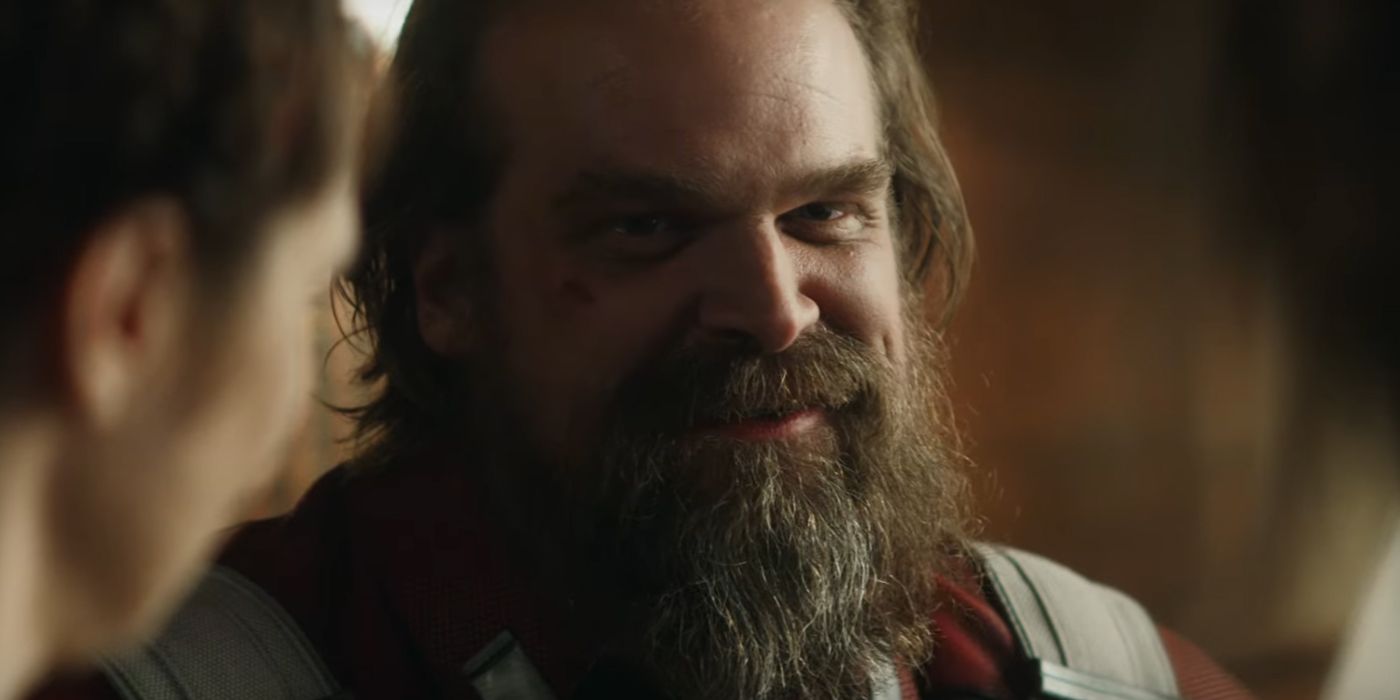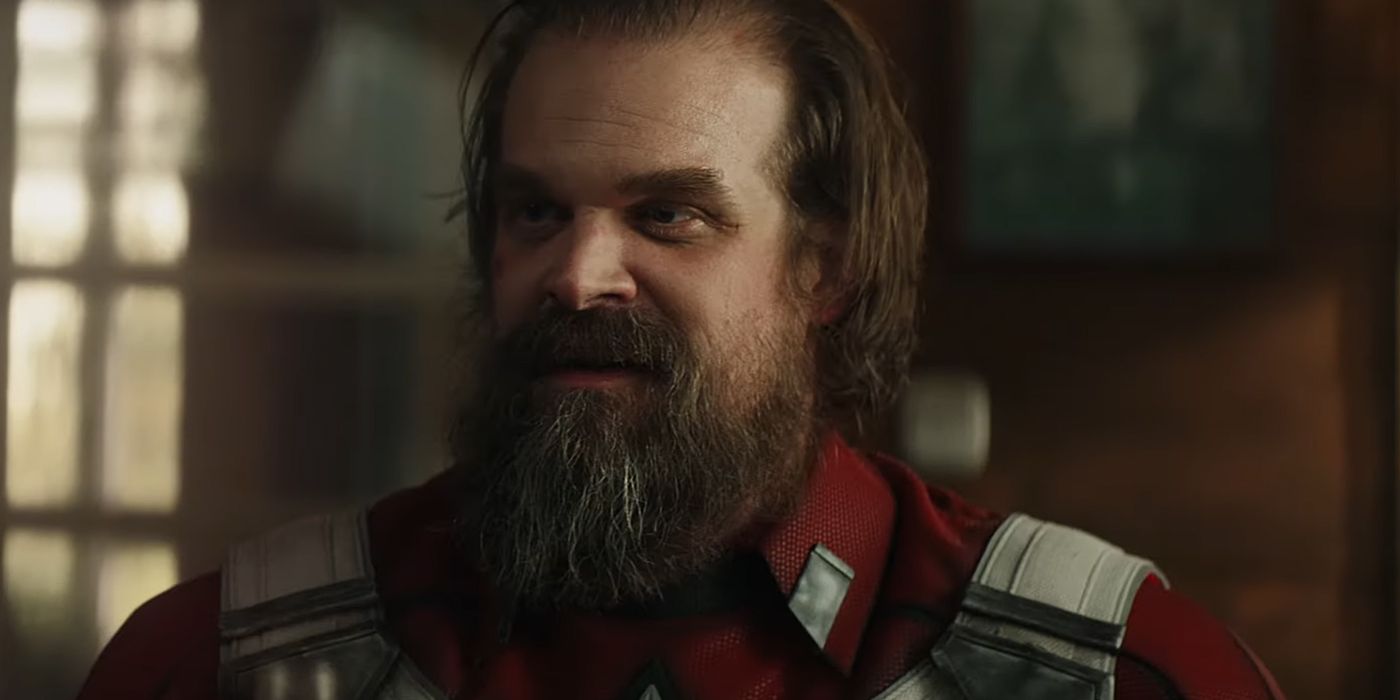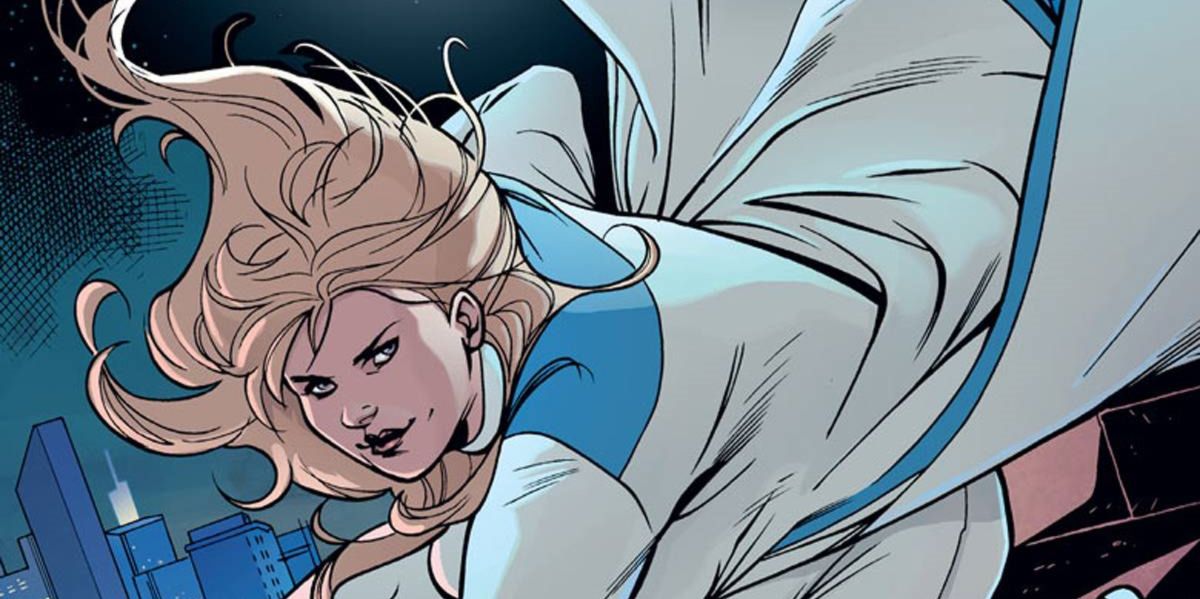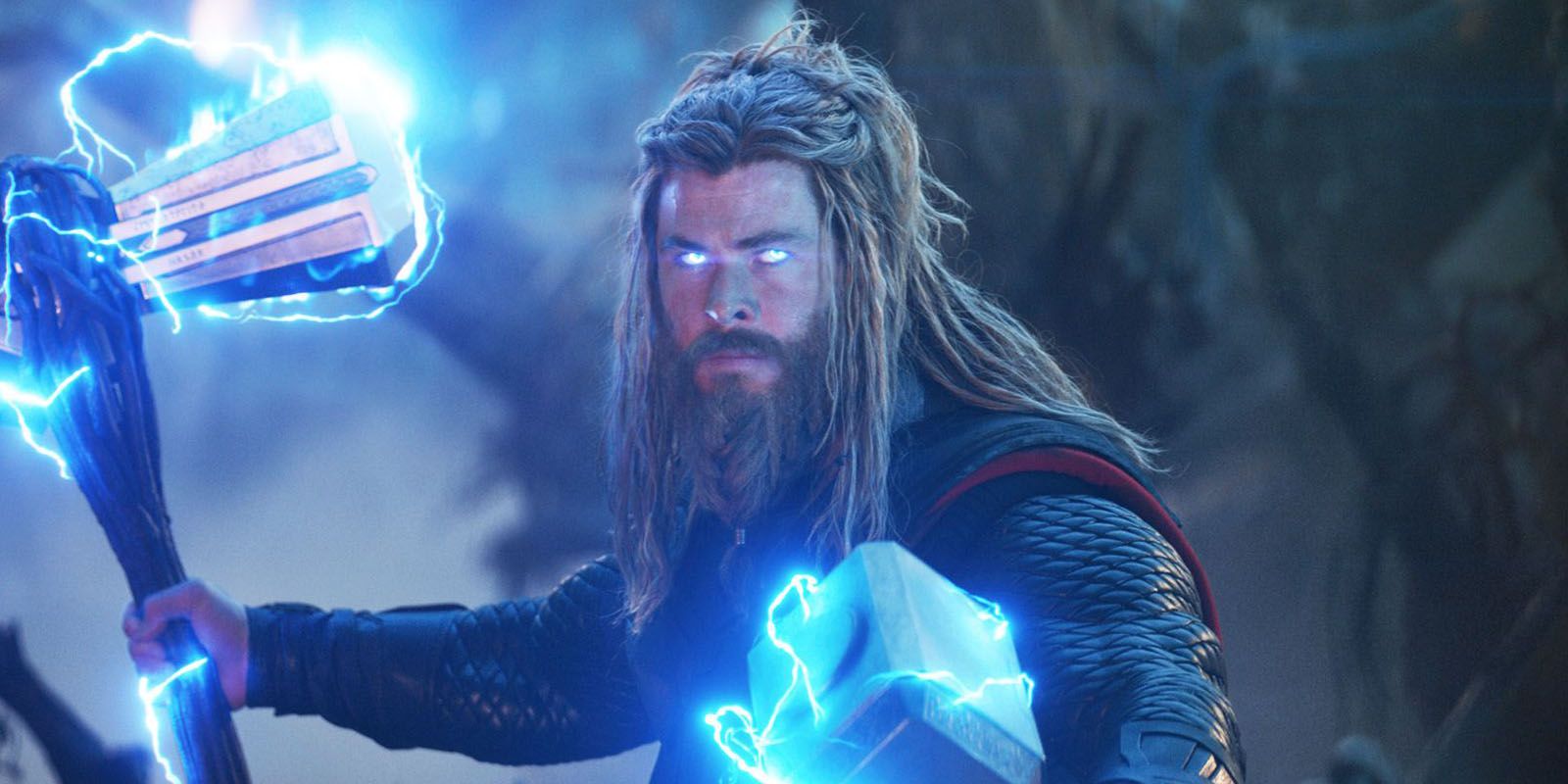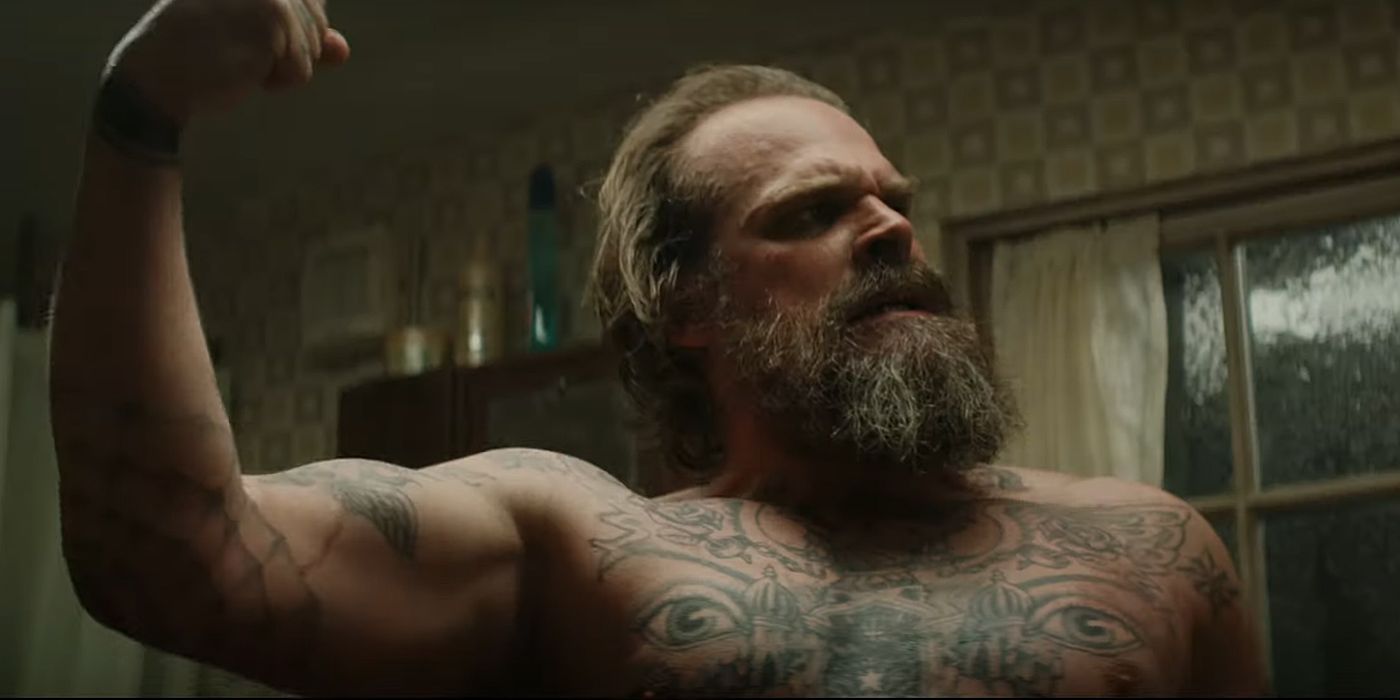As much as anyone, David Harbour stole the show in the two-minute teaser for Black Widow. While the teaser focused on establishing Black Widow as a solo character by delving into her old life, Harbour's Red Guardian, a Russian super-soldier, made a dynamic debut. The aging hero seemingly serves as something of a patriarch to Black Widow. However, as Rachael Weisz's character Melina points out, he has grown a little chubby in old age.
Moments after that's said, the trailer makes it clear that Red Guardian, even in middle age, is a strong hero who is capable of going toe-to-toe with Taskmaster. By all accounts, it looks like Harbour will be bringing his signature dad bod charm to the Marvel Cinematic Universe, and may potentially offer the body representation the MCU needs, especially after the more problematic aspects of Avengers: Endgame's Thor.
Body Positivity
In recent years, the body positivity movement has made the argument that all bodies are worthy of respect and beauty. The push for representation in recent years, however, often ignores body positivity. While racial, gender, and sexuality diversity are crucial, heavier characters are often not presented in a role of power or presented as the butt-end of jokes.
The idea of a bumbling heavy-set character whose weight or oafishness the butt of almost every joke is beyond cliche at this point. These tired jokes have built harmful stereotypes surrounding heavier people. They're cliches that add little to nothing to a narrative. In fact, more often than not, they take away from the narrative by bringing the story to a halt to tell a bad joke everyone has heard a thousand times before.
On the other hand, body positive characters are refreshing. Rather than being the target of a demeaning joke, the characters are treated as characters. Despite the fat joke in the Black Widow trailer, the Red Guardian appears to be a body-positive character, as opposed to Thor who, in Avengers: Endgame, presented himself in a less stunning fashion.
Body Culture in Superhero Fiction
It's important to note that superhero media has a deeply ingrained body image problem. Most fans are accustomed to seeing actors take on superhero roles and get incredibly fit for the role, even if that puts their physical health at risk. Actors like Christian Bale very famously alter their bodies for each new role they take on. When Bale first took on the role of Batman, he gained over one hundred pounds of muscles, following his skeletal performance in The Machinist. Hugh Jackman has stated that, when doing shirtless scenes as Wolverine, he'd actually dehydrate himself in order to lose extra weight.
These practices are incredibly dangerous, but also reflect the culture surrounding superheroes in comics as well, where there are very few plus-sized heroes. The best example in modern memory of a heavy-set superhero is Faith from Valiant Comics, but she's the glaring exception who proves the rule. Outside of gags or Silver Age bizarro issues, the vast majority of heavy-set characters are either villains or written off as jokes. The culture surrounding weight in comics is that excess weight is often portrayed as a bad thing, either as a sign of personal failure or corruption. In an extreme case, this takes the shape of when the New Mutants' Karma gained a lot of while possessed by the Shadow King in the '80s, but it's still prevalent in less extreme ways today, as represented by the overall failure of the heavy-set Peter B. Parker's life in Spider-Man: Into the Spider-Verse.
The Problematic Nature of Bro Thor
There's a very good chance that many audience members identified with Thor's arc in Avengers: Endgame.After failing to defeat Thanos, the God of Thudner fell into a depressive slump that was visually represented by a significant weight gain. That self-destructive path of depression and pain is familiar to anyone who has suffered from trauma and depression. Thor feels unworthy, and this sense of unworthiness results in how he keeps himself. If audiences didn't sympathize with Thor, then "Bro Thor," as he's been subsequently dubbed, wouldn't have become such a sensation among fans.
At the same time, however, this Thor isn't a body-positive character. Thor's weight is seen as a symptom of his pain. It isn't something that just is -- until, arguably, the film's third act. He is often, again, the butt-end of jokes that are ill-timed moments in the narrative. The jokes made at his expense make light of the character's incredible pain. As the audience, we are supposed to accept that it's fair to make jokes about Thor's body, despite the narrative attempting to have it both ways by delving deeper into Thor's pain as a character.
While there is a lot to take away from Thor's downward spiral and redemptive final heroic victory, there are still a lot of problems with the narrative. In the film, Chris Hemsworth is wearing a fat suit, which is something a lot of body positive activists (even ones who saw Bro Thor as a small step forward) find insulting. One thing in Bro Thor's favor, however, is that he learns to be an incredible hero with his dad-bod. But ultimately, Thor's portrayal in Endgame is a mixed bag.
Harbour Showing Off
The Red Guardian won't be David Harbour's first role in a superhero film, either. Earlier this year, he played the titular character in Hellboy, which received largely disappointed reviews. Harbour wears a muscle suit that essentially gives him a demonic eight-pack in the film. Black Widow, by contrast, features Harbour in his real body, which still has obvious strength. He's still playing a super soldier with a great deal of strength, and that strength hasn't gone away in his middle age.
From this small preview, we can develop a sense of where Harbour's Red Guardian will differ from Hemsworth's Bro Thor. The latter had a "dad bod," but it was a symptom of grief. It was a bump in the road rather than part of the Asgardian's natural aging. That's not the case for Red Guardian. Furthermore, the Guardian doesn't seem ashamed of his body. In fact, he seems downright proud of it, showing off his muscles while shirtless and bragging about how his suit still fits. He doesn't even seem bothered by jokes made at his expense.
While it's impossible to argue whether or not the whole film will carry through with the first impressions from the trailer, we'll have to wait until May to see if Harbour will offer a nuanced portrayal of an aging hero who still has it or if, like Bro Thor, we can expect an onslaught of jokes at the character's expense. However, early indicators hint at a strong possibility that Harbour will offer the first real step forward for body positivity in superhero cinema.
Directed by Cate Shortland, Black Widow stars Scarlett Johansson as Natasha, Florence Pugh stars as Yelena, David Harbour as Alexei aka The Red Guardian and Rachel Weisz as Melina. The film opens on May 1, 2020.

